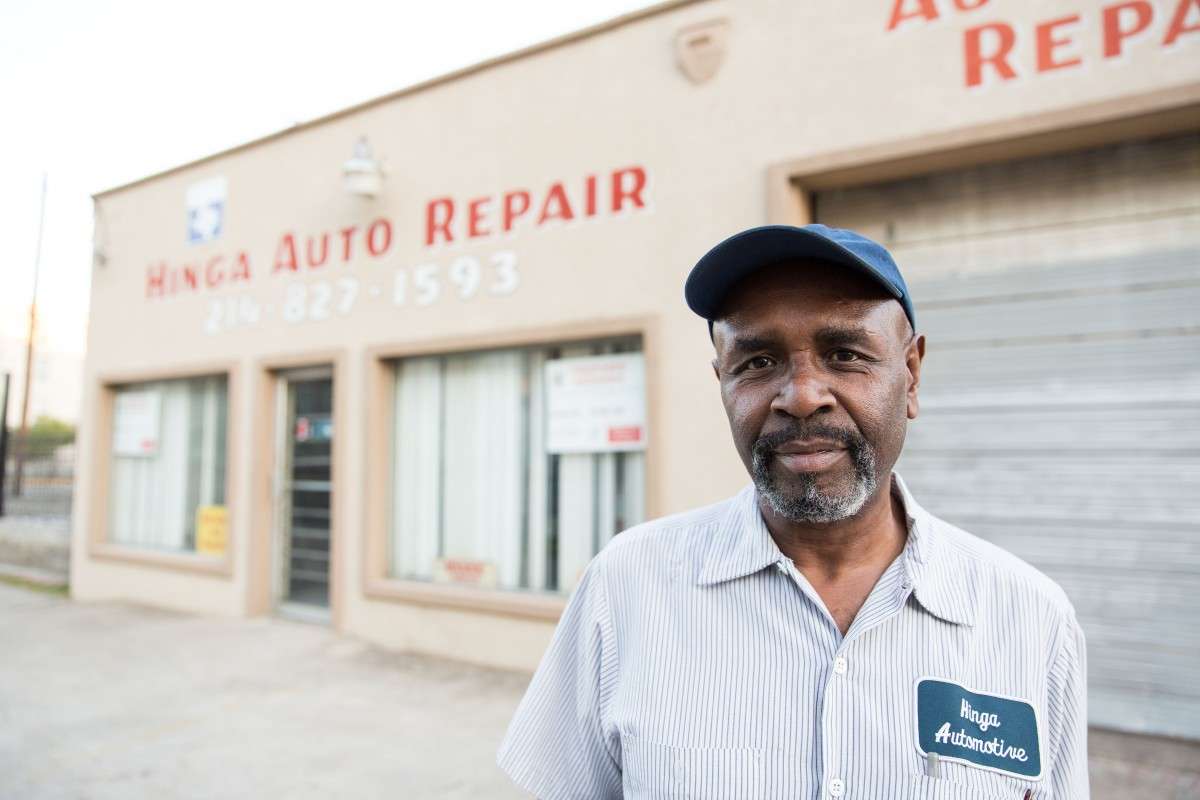Immigrant Could Lose His Business Because It's Not Fancy Enough for Lawmakers
If you thought eminent domain couldn't get any worse, Dallas will prove you wrong.

Hinga Mbogo is a Kenyan immigrant who has owned Hinga's Automotive Company in Dallas for 30 years. But because car repair shops are inconsistent with the local government's vision for an arts district, he may be forced to close. Even worse, there is no legal obligation for Dallas to compensate Mbogo for his property.
The saga began back in 2005 with Planned Development District 298. The city rezoned Ross Avenue, home of Hinga's, and made car repair shops illegal there. All other mechanics in the area have left as a result.
"When I found out about the zoning change, I couldn't believe that this was something that could happen in America," Mbogo said in a statement released by the Institute for Justice. "I left a country where something like this could happen, but not here. I thought that America was the land of opportunity."
The original law gave business owners three to five years to either sell their property or repurpose it as something more palatable to lawmakers, such as a hotel or restaurant. The ordinance did allow owners to file an appeal for a fee.
Because this is considered a simple zoning change rather than eminent domain—that is, the government's "right" to expropriate private property for public use—Dallas does not even have to compensate the business owners affected.
Mbogo was granted an extension until 2013, at which point he applied for a ten-year Specific Use Permit. Instead, the city gave him a two-year permit that expired in August of last year.
Mbogo has filed for another permit, but his request was rejected by the Dallas Plan Commission back in February—against the recommendation of the commission's staff. According to his local counsel, Daniel Branum, he has spent approximately $9,000 on the battle since 2010.
The city council is set to hear his case on April 13. There is a change.org petition with over 43,000 signatures asking the body to let Mbogo keep his business.
But even if his permit is approved, it will be temporary, meaning Mbogo could end up fighting the same battle all over again in a couple of years. The only permanent solutions to the conflict would be for the city council to repeal the zoning ordinance or for Mbogo to back down and sell his property.


Show Comments (120)